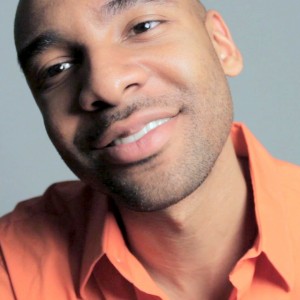Black Voices: I Choose to Speak Out
Topics
 Like many black MSM who test positive for HIV, my diagnosis was confirmed in a clinic full of strangers. My blood was drawn by an individual who suspiciously said very little to me during the screening process and the test was taken in a room so dingy and tight I suspected HIV was propagated by said facility.
Like many black MSM who test positive for HIV, my diagnosis was confirmed in a clinic full of strangers. My blood was drawn by an individual who suspiciously said very little to me during the screening process and the test was taken in a room so dingy and tight I suspected HIV was propagated by said facility.Like many black MSM who test positive for HIV, I was behaving consensually in a community I didn't recognize to be disproportionately affected by disease—nor, do I regret to say, did I know to know that. I trusted that if disease were present it would somehow be egregious and palpable. The type of sex I practiced, like many black MSM who test positive for HIV practiced, was often unprotected. But ignorance didn't exempt me from infection nor did it nullify the sting of being diagnosed. So after I was tested in that dingy, tight room, in that clinic full of strangers—when the verdict was finally passed down to me, after much wait and worry, I cried.
I’ll admit to knowing very little about HIV the day I was diagnosed. I didn't understand how the sexual behavior that I was accustomed to, with whom I was accustomed to behaving like that with, assured me my diagnosis. Unbeknownst to everything I thought I knew about how HIV is transmitted, my perception of risk was distorted.
There are those who will talk about the socioeconomic contributors that greatly increase our exposure to the virus—how drugs and alcohol are classified risk factors and how their peddlers have been prominent fixtures in predominantly black communities. How a lack of healthcare and education become precursors to behaviors such as prostitution and fates such as incarceration that can easily lead to exposure when safer sex practices can’t be or aren't always at play. For me, how being a community already riddled with red-alerts for other sexually transmitted infections such as gonorrhea, herpes, and Chlamydia, ups the ante just that much more for allowing HIV the opportunity to infect.
There is no simple answer to why there is such a disparity in our community or why this information gets missed. Sadly, from my experience, it seems the only people who know those statistics are those who either surveillance them, report them and/or are them. And for me, unless you are placed somewhere on that grid, more than likely, you wouldn't be able to tell me that 72% of new HIV infections are black gay men because you probably wouldn't know to tell me that. And, I was not able stress the importance of wearing condoms at all times because even in relationships HIV can happen. For me, trust, like I once thought isn't protection.
We in the African American community are still contracting HIV because HIV has always been a silent predator among us—a silence that for me we perpetuate. But to say this aloud would somehow ruin the anonymity that we think we've gained by keeping so hush. If we never admit to being affected then maybe this disease will rid itself—that type thinking has never worked. I encourage all of us to get tested and know your status because like many Black MSM I am HIV positive and instead of perpetuating a silence I choose to speak out.